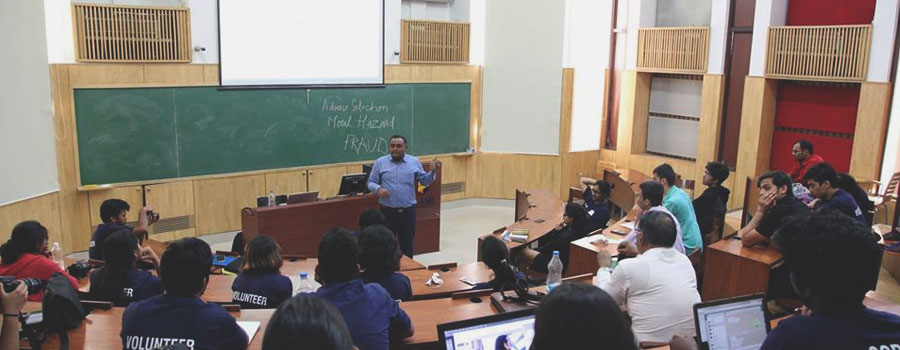There’s more to Economics than just graphs and numbers. This obvious insight led to the development of an all-Economics event at FLAME University called ‘Econvention’. It had its beginnings in a small room with an even smaller group of people, people who wanted to explore the economic realm outside textbooks and supply-demand graphs. This student run event’s objective was to broaden knowledge of the subject among young minds. Econvention then moved out of that small room, and became a collaborated effort of the FLAME Economics Club and the Department of Economics.
This venture was the brainchild of Navneeth J.K and Aravind Kodipaka under the constant guidance of Prof. Rupa Korde. The core team constituted of seven members whereas, the general committee was an amalgamation of a whopping 47 members. This two-day fest that took place on the 10th and the 11th of December saw the students participating in events, workshops, guest lectures, and even a panel discussion. The event called for the participants to have a rudimentary theoretical base in economics, which they drew upon to provide models to apply in real world situations. The nature of the fest was such that it allowed participants to use their academic knowledge to experience the economics of everyday life and even world events in real, practicable ways. Hence, the events had necessitated quick thinking and expertise which was quintessential to solve both kinds of dilemmas: staying grounded in logic while letting the imagination soar.
Among the various events, Poliself (developing policies to solve social issues) and Masala Allocation (starting up restaurants and economizing raw materials) became big hits. The panel discussion and workshops saw reputed dignitaries from the industry and respected academicians sharing a podium and discussing their views on the topic in hand. Few noted bigwigs who delivered talks included Rajesh Shah, Vice President of Adani who spoke about “Project funding and how it affects economy” and Prof. G.S. Gupta (formally from IIM Ahmedabad), author of several academic books on Economics who spoke about “Economics of Demonetization: Barter to Digital”. The objective was to bring in dignitaries from diverse fields of experience within economics to ensure that the practical as well as theoretical aspects are covered in detail, so that participants took away not only the excitement of simulated economic situations, but also new opinions and ideas that added to their knowledge of the subject they love.
HAPPENINGS @ FLAME
The latest happenings in the FLAME Community
FLAME University hosts its first student run economics festival


